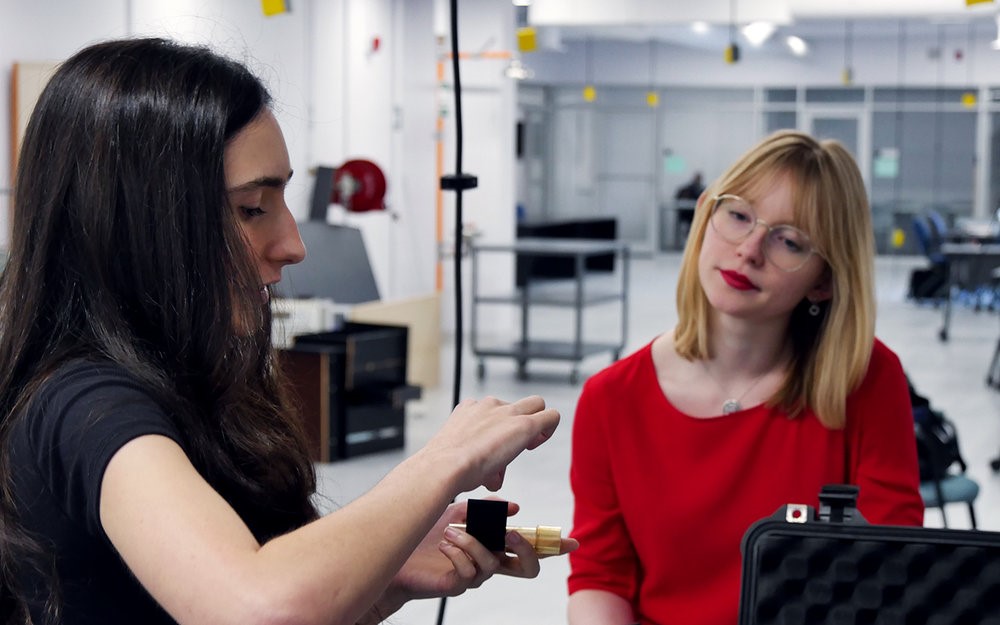 Executive Summary
Executive Summary
Mentors play a crucial role in the Canadian entrepreneurial ecosystem. They can transfer decades of knowledge to new founders and prospective entrepreneurs. Research has found that as many as 75% of new founders have used a business mentor.
However, a gap remains, as there are few resources to guide mentors and mentees in that often-complex relationship, especially regarding training. Additionally, research shows that women and racialized entrepreneurs are often disadvantaged from a network perspective, underlining the need to foster a more inclusive entrepreneurial ecosystem that includes mentoring. At the same time, there is no formal definition of mentoring competencies, and little analysis of what works for whom. The MindFrame Connect project was designed to address this.
Through engaging over 150 mentors, mentees and entrepreneurs in Canada, project coordinators developed a core set of best practices and patterns related to being in an effective mentorship relationship, as well as the core elements for maintaining one’s well-being as an entrepreneur.
Using these noted patterns and best practices, asynchronous and synchronous training was developed and delivered to over 6,000 mentors, mentees and entrepreneurs. Their real-time feedback (via surveys) tested the program’s hypotheses and provided a framework for continuous improvement of the program. The data provided via post-session evaluation informed the development and iteration of learning modules, skills and competencies taught and corresponding materials.
Specifically, the project’s goals were as follows:
Evaluate and continue to improve these frameworks through surveys and interviews to assess participant (mentor and mentee) satisfaction and feedback.
Develop and evaluate asynchronous training modules on a nationally accessible platform with the goal of increasing access and quality of mentorship and founder training resources.
Foster a more inclusive mentorship and menteeship ecosystem that supports entrepreneurs/small and midsize enterprises (SMEs) with curated content with an equity, diversity and inclusion (EDI) focus.
Key Insights
MindFrame Connect facilitated 186 workshops, trained 6,112 participants, and used the feedback from program participants to establish best practices and design. It later launched four asynchronous courses focused on building entrepreneurial resilience and strengthening mentor-mentee relationships.
The project developed and tested a competency framework that revealed resilience and flexibility as key entrepreneurial characteristics and highlighted the importance of strong mentor-mentee relationships in supporting entrepreneurial success.
Equity-deserving groups require mentoring strategies that differ from those for the general population.
 The Issue
The Issue
Access to mentorship in the Canadian entrepreneurship ecosystem plays a critical role in entrepreneurs’ ability to generate insights and action plans, gain access to networks and understand the processes that are part of their successes and failures. Working with a high-quality mentor also enhances an entrepreneur’s resilience, which allows the entrepreneur to continue their venture. However, to date, there have been no broadly accessible standards or working definitions of what criteria an effective mentor or mentee can implement, and mentorship programs rarely offer support and training to those providing the mentoring, leaving many mentors with a limited understanding of how best to support their mentees, especially those from equity-deserving groups. There is a need to support entrepreneurs by helping them develop psychological performance skills, such as resilience, to thrive under pressure and thus enhance their entrepreneurial and personal outcomes.
The MindFrame Connect program:
- Provided entrepreneurs and founders with the skills needed to navigate community-based resources (e.g., environmental, health, social and cultural) to support, maintain and enhance their and their teams’ health and well-being;
- provided founders with mentors who could teach the skills needed to become more resilient;
- developed and tested a national shared platform to service incubators and accelerators supporting founders and entrepreneurs;
- was delivered through multiple regional cohorts across Canada to assess its impact and provide feedback that will be used to improve future programming;
- assessed the impact and implications for entrepreneurs, mentors, policy-makers and program designers in the ecosystem.

 What We Investigated
What We Investigated
The project addressed the following research questions:
- What are the primary skills needed by entrepreneurs to support their mental well-being?
- What are the ecosystem supports required to ensure entrepreneurship is a viable option across demographics?
- What are best practices, across domains, to embed resilience supports in the Canadian entrepreneurial ecosystem?
Between 2020 and 2023, the MindFrame Connect program coordinators:
- reviewed literature, including 276 articles (academic journals and grey literature);
- conducted 150 semi-structured, open-ended interviews to strengthen the foundations of this project on the topic of mentorship and ecosystem needs;
- Eight semi-structured, in-depth interviews were conducted with entrepreneurs on their resilience practices.
- Forty semi-structured, open-ended interviews were conducted with ecosystem partners who represent accelerators, incubators and entrepreneurial programs in Canada.
- hosted five roundtables designed to explore EDI and mentorship more broadly with 23 members of the entrepreneurial ecosystem;
- hosted 186 beta training sessions and workshops for over 6,000 mentors, mentees, entrepreneurs and accelerator programs to provide real-time feedback on structure and effectiveness.
The project developed all training, learning aids and frameworks and then tested them via beta training sessions.
Continual evaluation and feedback were foundational components of the project. Upon pilot wrap-up, the project identified the importance of diving deeper into EDI and mentorship; determining where gaps exist; and finding opportunities to support. The findings from the roundtables will be used to inform future programming.
 What We’re Learning
What We’re Learning
Key outputs of MindFrame Connect programming:
- An online platform was developed for mentors and mentees, with resources and training programs focused on building resilience and maximizing the mentor-mentee relationship.
- More than 6,100 people participated in 186 workshops and events.
- The eCourses benefitted 210 unique users.
- Over two years, more than 2,000 surveys helped organizers assess the program’s effectiveness and participants’ satisfaction.
- Six hundred people became email subscribers.
- Twenty-one articles, podcasts and interviews were published.
- The MindFrame Connect website had 36,000 visitors and views during the pilot.
- Overall social media engagement was 3.67 times higher than the previous year, and impressions grew 8.99 times the previous year.
- Three academic research projects on mentorship, entrepreneur skills for mental resilience, and ecosystem strategies for resilience were developed as part of the MindFrame Connect project. These included two meta-analyses, a literature review and two interview-based qualitative research reports featuring entrepreneurs from across Canada.
The program effectively strengthened the entrepreneurship ecosystem network
Strategic development of complementary programming in partnership with accelerators and incubators in Canada increased access to entrepreneurs, provided assets to entrepreneur support programs, and allowed MindFrame Connect to better identify gaps in current resources. Additionally, program leads from various stakeholder groups across Canada were able to strategize on the topics of mentorship and resilience skills through MindFrame Connect relationship building and program offerings.
Iterative program design revealed which teaching styles were effective for various learners
MindFrame Connect utilized diverse teaching approaches and styles to meet the needs of various adult learners. This experimentation allowed the project to identify which styles were most effective with various audiences. By offering a broad library of synchronous and asynchronous programming, a much larger population was able to access the resources developed by the program.
Standardizing expectations for mentors and mentees benefits both parties
Given the diverse nature of mentorship and the often informal approach of the relationship, project coordinators realized there was a need for established certification and credentials across Canada to establish best practices and industry benchmarks. Additionally, barriers to menteeship and education are present for equity-deserving entrepreneurs. Standards for mentors on inclusive practices may assist in reducing these barriers.
Short, asynchronous, self-paced sessions worked best for entrepreneurs
Time considerations were particularly important in interventions or programming offered to the entrepreneurs. The most well-attended sessions were 60–90 minutes in length. It was more difficult to confirm and register participants for longer sessions. To this end, implementing programming for this population would likely be most effective with repeat sessions that are no more than 90 minutes, as many entrepreneurs are unable to commit more than that amount of time during their workday.
Additionally, asynchronous, self-paced programming was a sought-after feature of this program, as entrepreneurs could access high-quality, evidence-based learning during the time available to them rather than at a set time. Knowledge translation was also important, as research and academic language were not effective with this population. Skill-based, common-language lessons from leaders in the field yielded the most engagement.
Champion models within the ecosystem were effective at improving attendance and participation rates. Given the nature of entrepreneurship, the opportunity to learn with known leaders and to network was often cited in our qualitative feedback as highly valuable.
 Why It Matters
Why It Matters
With rising costs due to inflation and issues such as work-life balance, entrepreneurs in Canada are seeing a decline in their mental health. In fact, a recent report published by the Business Development Bank of Canada (BDC) in February 2023 indicates that 45% of Canadian business owners “felt mental health challenges,” compared to 38% in February 2022. The report shows that mental health issues are more likely to be felt by those from equity-deserving groups.
Mentorship and ecosystem supports have been proven to increase the well-being of entrepreneurs, and in fact, the BDC report found that next to professional help and mindfulness training, business mentoring was seen by entrepreneurs as beneficial for addressing mental health concerns.
Policy-makers should not just focus on funding programs that support the day-to-day operations of a business, but rather take a holistic approach that supports the individual(s) behind the business. An entrepreneur’s well-being can significantly impact the success of their business and be a key indicator of success. Ensuring Canada is creating sustainable SMEs starts with ensuring that business owners’/entrepreneurs’ well-being is at the forefront.

State of Skills:
Quality of Work
As Canada navigates continuing labour shortages in critical areas of the economy, policymakers and employers are looking for more effective approaches to recruit and retain workers
Given that mentors play a major role in entrepreneurs’ well-being, supporting projects/programs that focus on improving entrepreneur well-being and supports is imperative. By doing so, policy-makers in Canada would create a more sustainable approach to supporting entrepreneurs and, in turn, create healthier SMEs that continue to drive Canada’s economy.
 What’s Next
What’s Next
Building on findings from Mindframe Connect 1.0, project coordinators will expand partnerships and outreach to connect with more women in tech and entrepreneurs from equity-deserving groups.
This project will contribute to the development of the Diversity Institute and Future Skills Centre’s overarching entrepreneurship competency framework, which defines skills for entrepreneurs at different stages, in different sectors and from different equity-deserving groups.
Have questions about our work? Do you need access to a report in English or French? Please contact communications@fsc-ccf.ca.
More from FSC
Digital Skills for a Future-Ready World
Starting a new business in Canada: A report from the Survey on Employment and Skills
Development of Soft Skills in Future Employees
MindFrame Connect is funded by the Government of Canada’s Future Skills Program. The opinions and interpretations in this publication are those of the author and do not necessarily reflect those of the Government of Canada.




